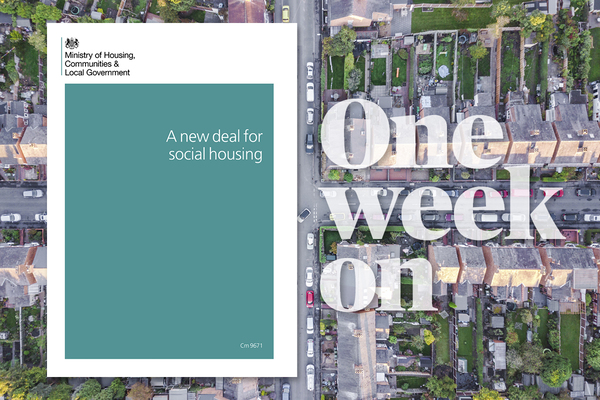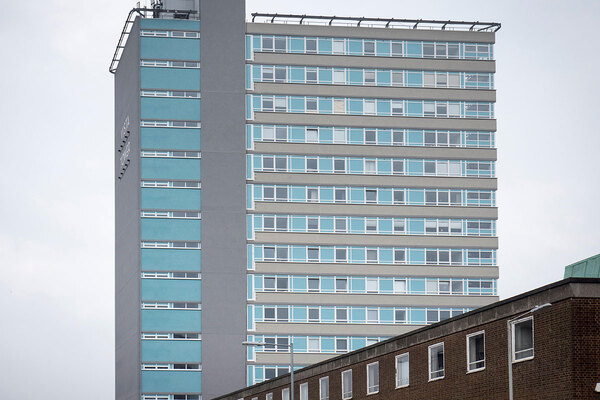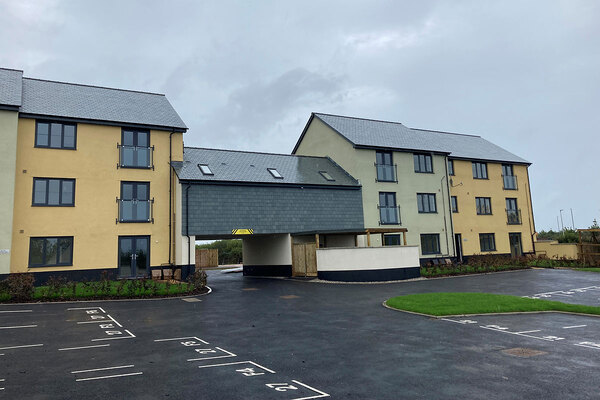Green paper: a missed opportunity on leaseholder terms?
The difficult relationship between social housing landlords and leaseholders was overlooked in the government’s green paper. Here, Andrew Cowan argues it could be a missed opportunity
In response to the Grenfell Tower tragedy, the government’s Social Housing Green Paper challenges the role of housing associations as landlords and their wider services, with many accused of not listening to residents.
However, the green paper fails to acknowledge the often difficult relationship between housing associations and their leaseholders, particularly those with shared ownership and Right to Buy (RTB) properties.
A housing association may sometimes fall short on its services to tenants, but still show a willingness to plough its resources into remedying the issue based on a clear core value. But the same thinking doesn’t always apply with leaseholders as the relationship is less clear.
The problem is that historically there have been questions raised about whether shared ownership lessees and RTB leaseholders are part of a housing association’s core group of beneficiaries, which it wants to serve long term with discounted value-added services.
This issue manifests itself in the service charges and rents payable on these homes. Often, and as reported in The Sunday Times and recent research by Shelter, shared ownership lessees are unaware of the full costs and responsibilities of taking on a shared ownership lease, and RTB leaseholders are unaware of the capital maintenance costs. And because these residents are viewed by housing associations as able to fund their own costs, so are not suitable recipients of discounts by a charity, they can’t justify passing any discounts to them.
In particular, where there are mixed-tenure blocks (and with RTBs), this can make housing management complex. For example, at Grenfell the landlord was initially criticised for not knowing who was living in the block, but this was because many of the homes were ex-RTB leaseholds. If leaseholders change interior fittings such as doors, which do not have the appropriate fire safety accreditation, a housing association would be unaware of this modification so be unable to rectify it.
Most profoundly on capital repairs to the building’s fabric, and especially with mixed-tenure schemes, lessees will be unwilling to meet their share of these costs. This can be the case even where, for example, they encompass fire safety works.
The recent actions by housing associations to carry out capital repairs to remove cladding without recharging them to leaseholders was a rational and mature reaction to resolving a difficult situation. But it may also lead to an increased expectation that landlords will continue to fund capital works.
So it may be that the green paper has missed one of the main groups of housing association residents, and one that is often as interested in the cost of a service as the quality of it. In doing so, it has missed a potential opportunity to try and resolve what will be a growing issue as sales of shared ownership homes increase.
For housing associations this is important as any serious challenge to this ownership model would damage their cross-subsidy models for delivering social rented housing. If this issue isn’t dealt with there is also a risk that people confuse the complaints of this group of residents with the views of tenants. Certainly news outlets do not make it clear which category a resident belongs to, generally with the implication they are a tenant.
Although the green paper may not cover this group of residents, they can’t be ignored if the sector is to succeed in demonstrating its effectiveness, in particular to MPs who also see leaseholders in the same way they view tenants. But without significant investment in this group of residents who most housing associations would not regard as a “beneficiary” class, it seems unlikely these aspirations will be met.
Andrew Cowan, partner and head of social housing, Devonshires












